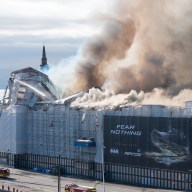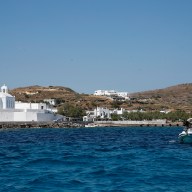By Samia Nakhoul, Nick Tattersall and Orhan Coskun
ANKARA (Reuters) – Turkish President Tayyip Erdogan promised on Thursday to quickly restructure the armed forces in order to prevent another coup attempt, signaling a major overhaul in the military as emergency rule took hold across the country. Erdogan’s comments to Reuters in an interview – his first since announcing the state of emergency late on Wednesday – come as Turkey seeks to assure its citizens and the outside world that the government was not turning its back on democracy and returning to the harsh repression of past regimes. With authorities cracking down on tens of thousands of people in the judiciary, military, education and civil service sectors after last weekend’s failed military coup, a lawmaker from the main opposition party said the state of emergency created “a way of ruling that paves the way for abuse”. Western countries are worried about instability and human rights in the NATO member country that is a key partner with the United States against Islamic State and with the European Union to stem the flow of refugees from Syria. Speaking to Reuters at his palace in Ankara – which was targeted during the coup attempt – Erdogan underscored the need for a military overhaul after describing what he said were deficiencies in Turkey’s intelligence service. “It is very clear that there were significant gaps and deficiencies in our intelligence, there is no point trying to hide it or deny it. I told it to the head of national intelligence,” Erdogan told Reuters. He said a new coup attempt was possible, but would not be easy, adding “we are more vigilant”.
“We cannot afford to be complacent,” he said, and the military would have “new blood” soon.
Erdogan also said there was no obstacle to extending the state of emergency beyond the initial three months – a comment likely to spark concern among critics already fearful about the pace of his crackdown. Announced on Wednesday, the state of emergency will allow the government to take swift measures against supporters of the coup, which left more than 246 people were killed and over 2,000 wounded. Emergency rule will permit the president and cabinet to bypass parliament in enacting new laws and to limit or suspend rights and freedoms as they deem necessary.
Germany called for the measure to be ended as quickly as possible, while an international lawyers’ group warned Turkey against using it to subvert the rule of law and human rights, pointing to allegations of torture and ill-treatment of people held in the mass roundup. The EU, which Turkey is a candidate to join, said it was following the events with concern. Its foreign affairs chief described decisions taken so far in education, media and the judiciary as “unacceptable”, an apparent reference to the detentions and dismissals of teachers and judges, bans on travel for academics and the detainment of journalists. For some Turks, the state of emergency raised fears of a return to the days of martial law after a 1980 military coup, or the height of a Kurdish insurgency in the 1990s when much of the largely Kurdish southeast was under a state of emergency declared by the previous government. Opposition parties which stood with the authorities against the coup expressed concern that the state of emergency could concentrate too much power in the hands of Erdogan, whose rivals have long accused him of suppressing free speech. About 60,000 soldiers, police, judges, civil servants and teachers have been suspended, detained or have been placed under investigation since the coup was put down.
Deputy Prime Minister Mehmet Simsek, who previously worked on Wall Street and is seen as one of the most investor-friendly politicians in the ruling AK Party, took to television, social media and news conferences in a bid to calm nervous financial markets and dispel comparisons with the past. “The state of emergency in Turkey won’t include restrictions on movement, gatherings and free press etc. It isn’t martial law of 1990s,” he wrote on Twitter. “I’m confident Turkey will come out of this with much stronger democracy, better functioning market economy & enhanced investment climate.” ‘SURVIVE THIS SHOCK’
Markets were less confident. The lira currency was trading near a new record low on Thursday, while the main stock index tumbled 4.4 percent. The cost of insuring Turkish debt against default also surged. But Simsek tried to play down the losses. “In circumstances like this, there is a kneejerk reaction, it’s typical. I know that because I come from that business,” he told reporters. “I need markets to understand that we are going to survive this shock.” Justice Minister Bekir Bozdag said the state of emergency was aimed at averting a possible second military coup. Another deputy prime minister, Numan Kurtulmus, was quoted by broadcaster NTV as saying Turkey would invoke its right to suspend its obligations temporarily under the European Convention on Human Rights. Turkey’s Western allies have expressed solidarity with the government over the coup attempt, but have also voiced alarm at the scale and swiftness of the response, which includes a purge in universities and a ban on academics traveling abroad. German Foreign Minister Frank-Walter Steinmeier warned the government against extending the state of emergency beyond three months, saying this “would exacerbate tensions inside Turkey”. Speaking in Washington, he also expressed doubt about the legality of banning university professors from teaching and preventing researchers from leaving the country. The Geneva-based jurists group ICJ also weighed in, with its secretary general, Wilder Tayler, saying in a statement: “There are human rights that can never be restricted even in a state of emergency.” “The current allegations of torture and ill-treatment of detainees and arbitrary arrests already point to serious violations of human rights,” he said.
Tayler gave no details of the allegations, but noted that Erdogan has raised the possibility of reinstating the death penalty, responding to supporters’ demands for the coup leaders to be executed. The European Convention on Human Rights allows signatory states, which include Turkey, to suspend some of its stipulations temporarily in times of emergency, but officials have said a return to the death penalty would effectively end Turkey’s hope of joining the EU. Simsek ruled out the use of torture or curfews. He added, however, that the government would need to “double and triple check” the central bank and Treasury for coup plotters.
Officials in Ankara say former air force chief Akin Ozturk, who has appeared on television from detention with his face and arms bruised and one ear bandaged, was a co-leader of the coup. Turkish media have reported that he denied this to prosecutors and that he said he tried to prevent the attempted putsch. Some detained soldiers have been shown in photographs stripped to their underpants and handcuffed on the floors of police buses and a sports hall.
Eight Turkish soldiers who fled to Greece in a military helicopter after the failed coup fear they will be killed if they are sent back home, one of their lawyers said on Thursday.
NETWORK OF FOLLOWERS
Erdogan has said the sweep is not yet over and that he believes foreign countries might have been involved in the attempt to overthrow him.
A nationalist opposition party supported the state of emergency, but other opposition politicians were uneasy. “Once you obtain this mandate, you create a way of ruling that paves the way for abuse”, Sezgin Tanrikulu, a lawmaker with the secular Republican People’s Party (CHP) told Reuters. “The coup attempt was rebuffed with parliament and opposition support, and the government could have fought this with more measured methods”.
Erdogan, an Islamist who has led Turkey as prime minister or president since 2003, has vowed to cleanse the “virus” responsible for the plot from all state institutions.
He blames a network of followers of an exiled U.S.-based cleric, Fethullah Gulen, for the attempted coup in which soldiers commandeered fighter jets, military helicopters and tanks in a failed effort to overthrow the government. Ankara has said it will seek the extradition of Gulen, who has denounced the coup attempt and denied any involvement.
The putsch and the purge that has followed have unsettled the country of 80 million, a NATO member bordering Syria, Iraq and Iran, and a Western ally in the fight against Islamic State.
The state of emergency went into effect after it was published in the government’s official gazette early on Thursday. Parliament formally approved the measure on Thursday.
Erdogan announced the state of emergency in a live broadcast in front of his government ministers after a nearly five-hour meeting of the National Security Council.
“The aim of the declaration of the state of emergency is to be able to take fast and effective steps against this threat against democracy, the rule of law and rights and freedoms of our citizens,” he said. (Additional reporting by Ece Toksabay and Gulsen Solaker in Ankara, Humeyra Pamuk, Ayla Jean Yackley, Gareth Jones and Asli Kandemir in Istanbul; writing by David Dolan; editing by David Stamp, Timothy Heritage and G Crosse)















